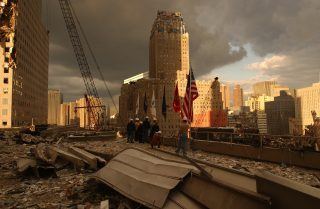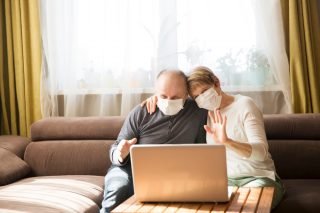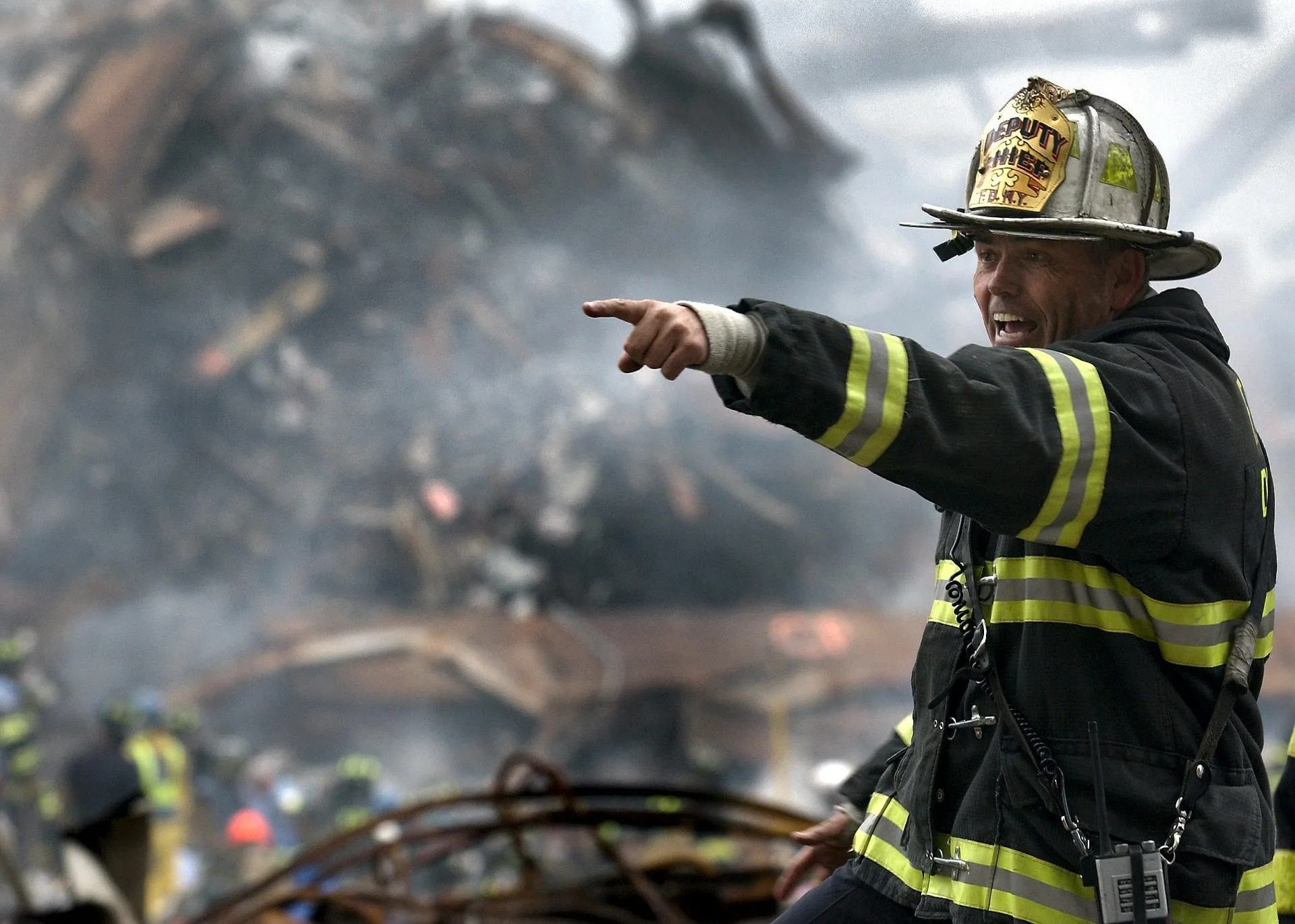This past Saturday marked the 20th anniversary of 9/11. While nearly 3 000 people died on that fateful day, in the past 20 years, the number of health issues and deaths among survivors and first responders has continued to rise.
9/11 Health Issues – Twenty Years Later
The World Trade Center (WTC) Health Program is a federally funded program that monitors the health of 9/11 responders and survivors.
According to the Scientific American, around 74% of responders in the program have been diagnosed with at least one physical or mental health condition directly linked to 9/11 exposure. What’s more, at least 4 627 responders and survivors in the program have died.
The WTC revealed that the most common conditions affecting first responders and survivors include different types of cancer, respiratory ailments, sleep apnea, and mental health disorders that include post-traumatic stress disorder (PTSD), and anxiety or major depression.
Cancers
According to a study published in the JNCI Cancer Spectrum, 9/11 responders face a much higher risk of developing certain cancers, compared to the general population. A separate and more recent study from Occupational and Environmental Medicine found that male firefighters who were at ground zero following the 9/11 attacks are 13% more likely to develop cancer than firefighters who didn’t work as first respondents on the day. 
Additionally, another study also found that the same firefighters who worked the ground zero site also face an increased risk of developing a rare variant of a blood cancer precursor disease. This same disease was also more common among Vietnam War veterans exposed to the toxic herbicide Agent Orange.
Prostate Cancer
According to the aforementioned study published in the JNCI Cancer Spectrum, first responders face a 24% increased risk of developing prostate cancer compared with the general population. What’s more, a 2019 study found that some responders are developing a more aggressive and fast-growing form of prostate cancer.
Researchers believe the toxic fumes inhaled by the responders triggered a cellular reaction that led to increased inflammation, and this in turn eventually led to prostate cancer (1).
Leukemia
The same study, found in the JNCI Cancer Spectrum, went on to mention that the responders also faced a 41% higher risk for developing leukemia.

Image by WikiImages from Pixabay
“Leukemia is associated with exposure to benzene, present in [high] quantity from burning jet fuel at the World Trade Center site,” said Dr. Moshe Shapiro, lead author of the study, to Scientific American.
More cancer diagnoses in the future
Dr. Iris Udasin is the principal investigator at the World Trade Center Health Program Clinical Center of Excellence at Rutgers University. Speaking to Scientific American, she said: “Cancers have long latency periods. Some cancers take 15 to 25 years to manifest themselves.”
Asbestos is another cancer-causing compound that plenty of survivors and responders were exposed to on the day. Unfortunately, we have to wait a little longer for the research on this, as the cancers linked to asbestos usually take 20-50 years to develop.
Respiratory ailments
The World Trade Center Cough is a condition that many responders developed weeks and months after 9/11. Symptoms include shortness of breath, nasal congestion, and acid reflux. Unfortunately, the respiratory ailments didn’t stop there.
According to a study published last week by the Cambridge University Press, 45% of responders in the WTC health program developed aerodigestive disorders, which are conditions that affect the airways and upper digestive tract. If that’s not enough, these conditions are also the number one cause of death among members of the WTC health program.
Sleep Apnea
Sleep apnea is a sleeping disorder that’s linked to cardiovascular conditions. Those who have sleep apnea experience the repeated stopping and restarting of their breathing while sleeping.
According to researchers from the Icahn School of Medicine at Mount Sinai, 9/11 first responders face a higher risk of obstructive sleep apnea because of “their exposure to inhaled particular matter.”
“Elevated exposure to the particulate matter from 9/11 caused upper-airway inflammation and is a significant contributing factor to the pathogenesis of obstructive sleep apnea,” said Mary Ann McLaughlin, M.D., MPH, and principal investigator for the WTC-Chest Program at Mount Sinai.
Dementia
It appears that the particles that were flying around on 9/11 didn’t only affect respiratory health, but also cognitive health. In fact, a recent story from the Washington Post details how 9/11 survivors are developing neurological conditions in their 50s, which is considered fairly early.
Two studies presented at the Alzheimer’s Association International Conference examined 9/11 first responders and their brain scans and blood biomarkers revealed changes that are consistent with changes in the brain similar to early-stage dementia and Alzheimer’s (2, 3).
PTSD

Photo by Jesse Mills on Unsplash
Unsurprisingly, considering the trauma and death that they witnessed on that day, around 20% of responders are living with post-traumatic stress disorder (PTSD) symptoms and this is about four times the rate of the general population in America.
Heart disease
According to a study published in JAMA Network, firefighters who worked on the morning of 9/11 were 44% more likely to develop cardiovascular disease than those who arrived the next day.
This may be linked to the fact that the aforementioned health issues, such as sleep apnea, can contribute to cardiovascular health issues.
Autoimmune disease
In 2020, a study published in Arthritis & Rheumatology revealed that first responders and survivors who inhaled the dust cloud on 9/11 faced a significantly increased risk for systemic autoimmune disease, including rheumatoid arthritis and lupus.
“Among individuals who took part in the rescue, recovery, or clean-up effort after 9/11, those who experienced intense dust cloud exposure that morning had an increased risk of developing a systemic autoimmune disease,” they said.
COVID-19
Suffice to say, the COVID-19 pandemic has also had an effect on those still reeling from the impact of 9/11.

Ulza/Shutterstock
As we know, people with preexisting conditions face a higher risk of COVID complications, and this has made responders and survivors much more vulnerable to COVID. Sadly, a July study published in PLoS ONE revealed a higher incidence of COVID-19 in WTC responders from January through August of last year.
Your health still matters – twenty years later
Despite the health effects affecting responders and survivors, it’s important to remember that a diagnosis is not a death sentence and that these heroes can still prioritize their health.
For instance, a recent study found that responders in the World Trade Center’s medical monitoring and treatment programs are 28% more likely to survive their cancer than the general population, and they also face a 36% reduced risk of dying from non-cancer causes.
Another study found that overweight 9/11 firefighters who followed a version of the Mediterranean diet for 6 months not only reduced their BMI but also reduced their risk for lung disease.
Conclusion
“With the 20th anniversary of 9/11 approaching, it is impossible not to reflect on how the World Trade Center attacks continue to exert a painful human toll,” says Moshe Shapiro, a researcher at the Icahn School of Medicine at Mount Sinai.
“I have spoken to many World Trade Center responders and am struck by one enduring theme: despite the medical and other consequences of the exposure, they say they would respond again in a heartbeat.”






![women [longevity live]](https://longevitylive.com/wp-content/uploads/2020/01/photo-of-women-walking-down-the-street-1116984-100x100.jpg)










